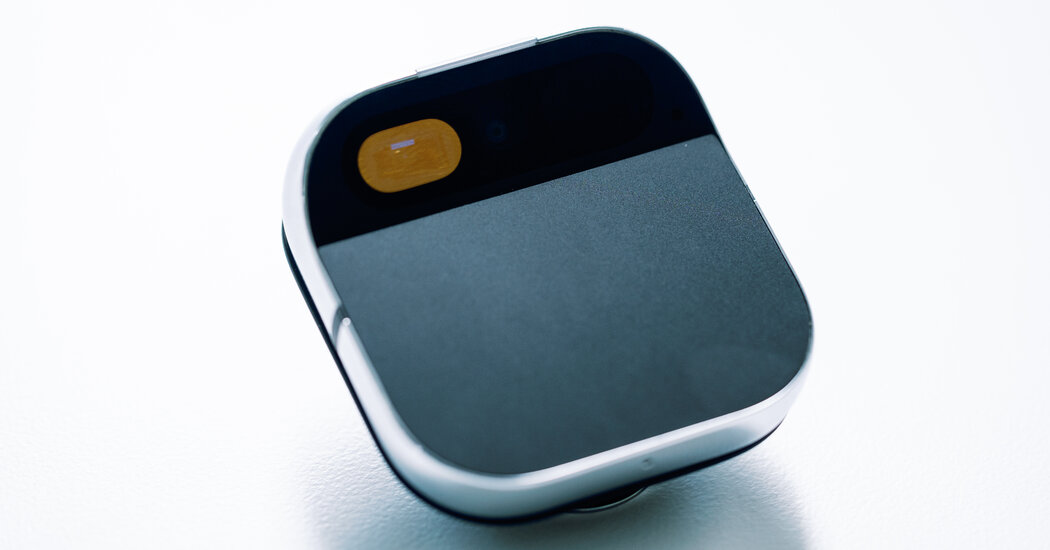
On a recent afternoon, I held a bagel in front of me and said: “Look and tell me if this is healthy.”
A monotone voice responded that the bagel was unhealthy because it was high in carbohydrates, which could contribute to weight gain.
I wasn’t talking to a tech bro obsessed with the ketogenic diet. This was the Ai Pin, a $700 tiny computer featuring a virtual assistant pulling data from OpenAI (the research firm behind the ChatGPT chatbot), Google, Microsoft and others to answer questions and perform tasks.
Shaped like a lapel pin that may be a throwback to “Star Trek,” it attaches to your clothing with magnets and is supposed to offload tasks you would normally do with a smartphone, like taking notes, searching the web and shooting photos. Instead of a screen, the pin shines a green laser on your hand to show text. The device includes a camera, speaker and cellular connection.
The novel design of the Ai Pin, which was made by the start-up Humane, generated buzz when it was unveiled late last year. Sam Altman, OpenAI’s chief executive, and companies including Microsoft and Salesforce have placed a bold bet — to the tune of $240 million in funding for Humane — that artificially intelligent hardware like the Ai Pin will become the next big thing after the smartphone. (The New York Times sued OpenAI and Microsoft last year for using copyrighted news articles without permission to train chatbots.)
Humane said its goal with the Ai Pin was to offer technology that would help people avoid screens and maintain eye contact.
